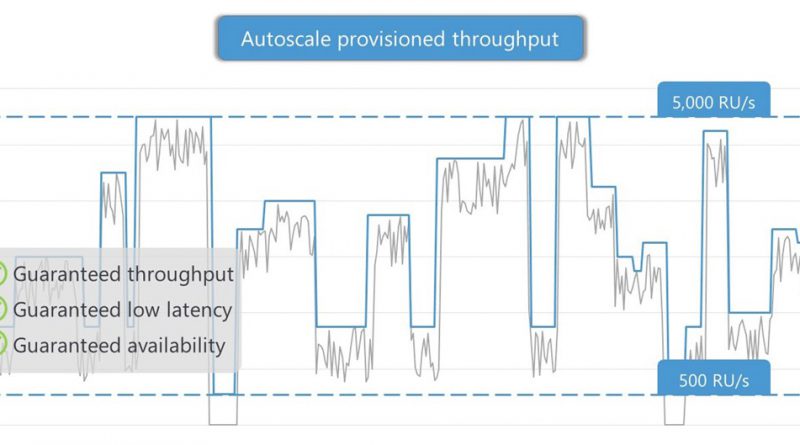Build apps of any size or scale with Azure Cosmos DB
During these uncertain times, building apps with agility and cost-effectiveness is more important than ever before. Azure Cosmos DB, Microsoft’s NoSQL cloud database, is introducing new ways to affordably scale performance, launching features that enable rapid application development across teams, and making enterprise-grade security available to apps of any size or scale. With Azure Synapse Link, Azure Cosmos DB also becomes the first database to break the barriers between transactional and analytical stores.
Run low-cost, high-performance applications with autoscale and serverless
With guaranteed speed and availability, APIs for MongoDB, Cassandra, and Gremlin, and instant and elastic scalability worldwide, Azure Cosmos DB has been a popular choice for building cloud-native applications since it launched three years ago. We’re pleased to introduce new support for spiky and unpredictable workloads that can offer savings of up to 70 percent compared to running these types of workloads with the standard provisioned throughput pricing model.
Autoscale provisioned throughput (called “autopilot mode” in preview) will maintain SLAs while scaling up to a customer-specified maximum to meet the needs of unpredictable, high-throughput workloads. Consumption-based billing (starting at 10 percent of maximum) eliminates the need to monitor capacity, and the first 400 request units per second (RU/s) of throughput and 5 GB storage are free each month when paired with Azure Cosmos DB free tier.
Autoscale provisioned throughput responds to workload demands while maintaining SLAs.
The serverless pricing model, in preview soon, will handle traffic bursts on demand. This makes it easy to run spiky workloads that don’t have sustained traffic and means dev/test accounts will never again have to be deleted over the weekend. You will only pay for storage and database operations performed, without any resource planning or management.
Enhanced enterprise security and developer productivity at any scale
Regardless of size or scale, security and agility are critical for developing modern applications. Azure Cosmos DB offers new enhanced enterprise-grade data security to all applications with encryption-at-rest with customer-managed keys available now, and Azure Active Directory (Azure AD) integration and point-in-time backup and restore, both coming soon.
To improve productivity and collaboration, a new version of the Azure Cosmos DB Python SDK is available now, with enhanced Jupyter Notebook features including C# notebooks, a new version of Azure Cosmos DB SDK for Java, change feed functionality preserving all operations history, and support for partial updates (HTTP PATCH)—the top UserVoice request—all coming soon.
"We found it easy to get started with Azure Cosmos DB and its flexibility helped us throughout our application development." —Lutz Küderli, Head of Digital Services, Life and Health, Munich Re
Faster insights with no data movement
Data scientists, business analysts, and data engineers can now get insights in near-real-time with cloud-native Hybrid Transactional/Analytical Processing (HTAP) using Azure Synapse Link for Azure Cosmos DB, now in preview. With Azure Synapse Link, the data in Azure Cosmos DB is automatically and continuously made available for analytics with no Extract-Transform-Load (ETL) through an analytical store built on top of the transactional store, and continual data updates happening with no performance impact on transactions.
Azure Cosmos DB—the best-in-class NoSQL database for modern applications
The serverless pricing model and automatic scaling to match application needs, enterprise-grade capabilities, and cloud-native HTAP make Azure Cosmos DB the best-in-class NoSQL database to build scalable modern applications fast and with minimal capacity management and maximum cost-effectiveness.
- Discover why Azure Cosmos DB is ideal for modern app development at Azure Cosmos DB.
- Find videos on key concepts, tips, tricks, and more at the Azure Cosmos DB video channel.
What will you build?
Source: Azure Blog Feed

